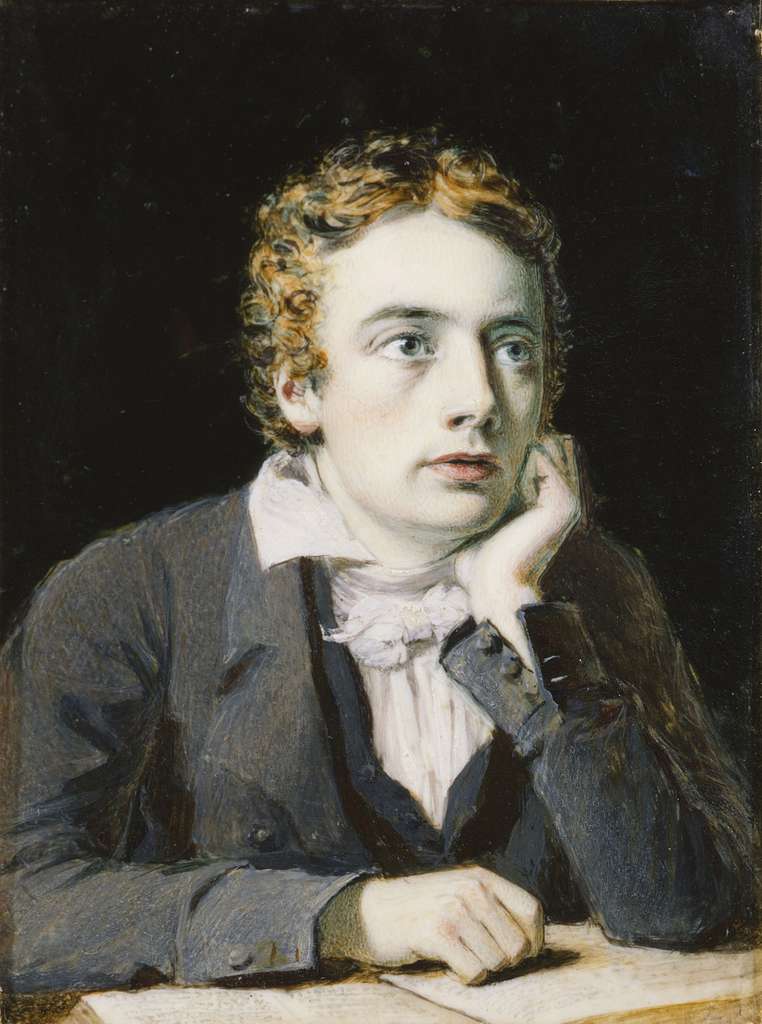John Keates

John Keats was an English Romantic poet whose work continues to captivate readers with its vivid imagery, emotional depth, and lyrical beauty. Born in London, in 1759 Keats showed an early aptitude for poetry and medicine, eventually pursuing both passions concurrently. His poetic career, though brief, was marked by a prolific output and had a profound influence on the Romantic movement.
Keats’ poetry is renowned for its sensual and imaginative language, often drawing on classical mythology and natural imagery to explore themes such as; love, beauty, and mortality. His most celebrated works include “Ode to a Nightingale,” “Endymion,” and “Ode on a Grecian Urn,” each showcasing his unique ability to evoke powerful emotions through evocative verse.
Despite his untimely death at the age of 25 due to tuberculosis, Keats’ legacy endures as one of the most significant figures in English literature. His poems have inspired generations of writers and continue to be studied and admired for their timeless appeal and artistic brilliance. Keats’ work is a testament to the enduring power of poetry to capture the human experience in all its complexity and beauty. He passed away in Rome on the 23 of February, where he still rests.
Ode on a Grecian Urn
Summary
In the first stanza, the speaker stands before an ancient Grecian urn and addresses it. He is worried about its depiction of images frozen in time. It is the “still unravish’d bride of quietness,” the “foster-child of silence and slow time.” He also describes the urn as a “historian” that can tell a tale. He wonders about the figures on the side of the urn and asks what legend they depict and where they are from. He looks at an image that seems to depict a group of men pursuing a group of women and wonders what their story could be: “What mad pursuit? What struggle to escape? / What pipes and timbrels? What wild ecstasy?”
In the second stanza, the speaker looks at another image on the urn, this time depicting a young man playing a pipe, lying with his lover beneath a glade of trees. The speaker states that the piper’s “unheard” melodies are sweeter than mortal melodies, as they are unaffected by time. He says even though the youth will never be able to kiss his lover because he is frozen in time, he should not grieve, because her beauty will never fade. In the third stanza, he views the trees surrounding the lovers and feels rejoyced that they will never shed their leaves. He is content for the piper because his songs will be “for ever new,” and happy that the love of the boy and the girl will last forever, unlike mortal love, which lapses into “breathing human passion” and eventually vanishes, leaving behind only a “burning forehead, and a parched tongue.”
In the fourth stanza, the speaker examines another image on the urn, this depicts a group of villagers leading an ox to be sacrificed. He wonders where they are going (To which green altar, O mysterious priest…) and from where they have come. He envisages their small town, empty of all its inhabitants, and narrates that its streets will “for evermore” be silent, for those who have left it, frozen on the urn, for they will never return. In the final stanza, the speaker yet again addresses the urn itself, stating that it, like Eternity, “doth tease us out of thought.” He contemplates that when his generation is long dead, the urn will remain, passing on to future generations its enigmatic lesson: “Beauty is truth, truth beauty.” The speaker says; that this is the only thing the urn knows and the only thing it needs to know.
